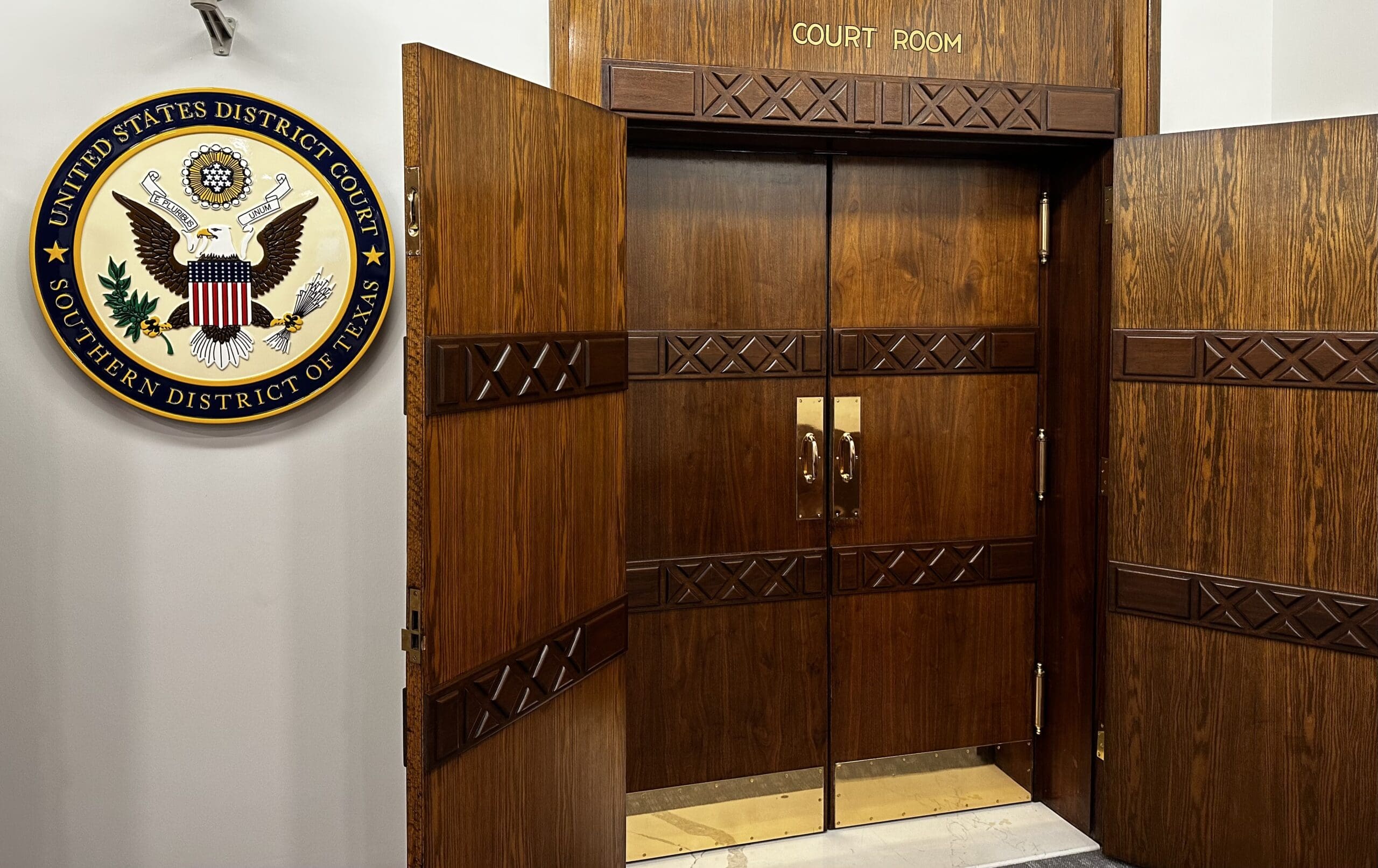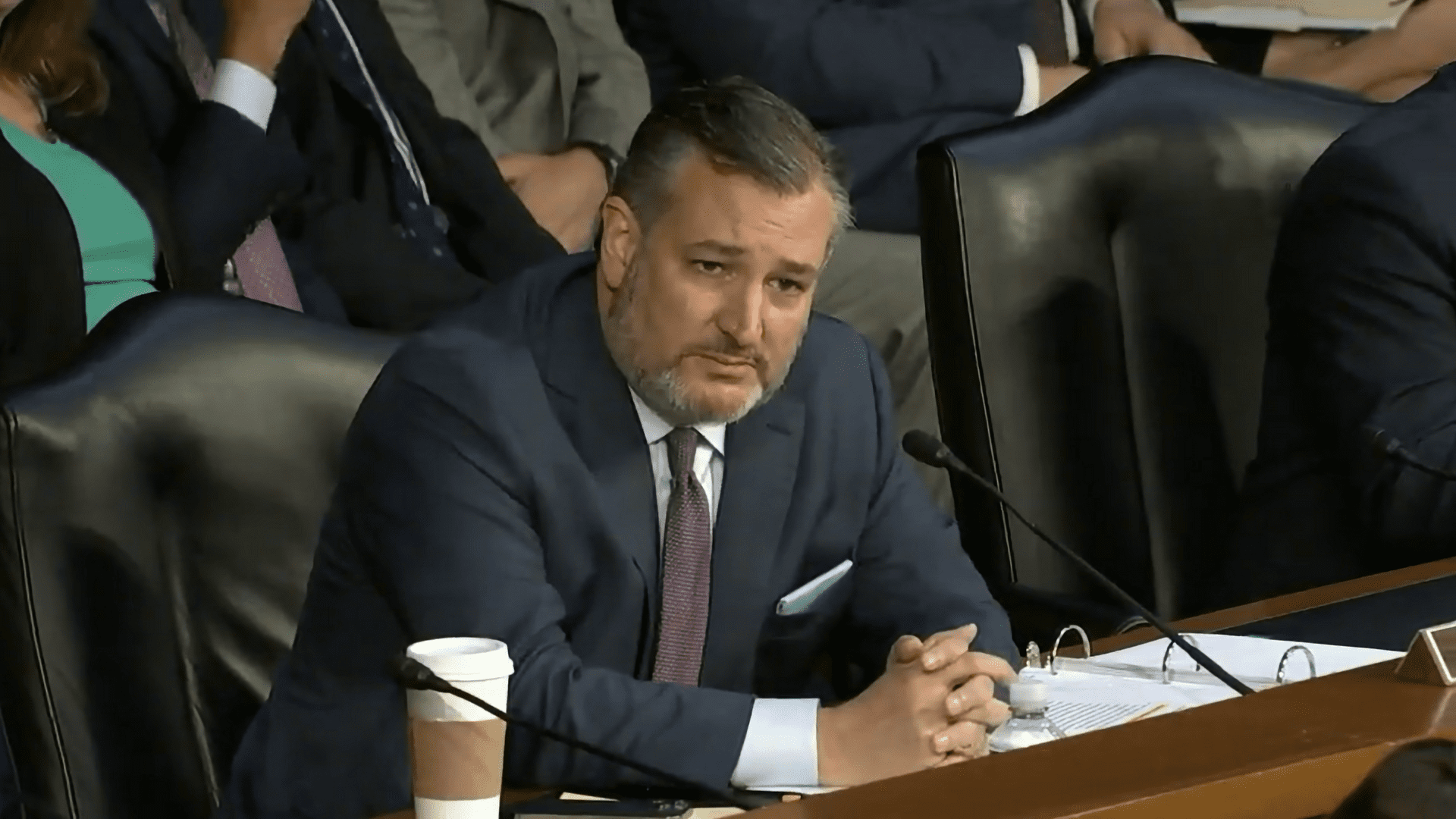Race was not a factor in redrawing Galveston County’s commissioners court precincts in 2021, according to testimony from the professional demographer who drew the new district maps for the county.
Thomas Bryan, a redistricting expert hired by the county to create precinct maps based on 2020 Census data, testified multiple times Wednesday in a federal court in Galveston that race “was not in any way a factor” in drawing his maps.
“At no point was I asked to consider racial demographics when drawing the maps, and I did not consider racial demographics when drawing them,” Bryan confirmed during continuing testimony on Thursday morning.
Bryan’s testimony came during the second week of a two-week trial to decide if the map adopted by Galveston County Commissioners Court in November 2021 complies with the Voting Rights Act.
A group of plaintiffs in three consolidated lawsuits have challenged the map as intentionally racially discriminatory, a violation of Section 2 of the VRA, because the county’s lone majority-minority commissioner precinct was eliminated.
All four precincts are now majority white. Two are represented by black commissioners, one Democrat and one Republican.
Dale Oldham, who served as legal counsel to Galveston County commissioners during their 2011 and 2021 redistricting, also testified Wednesday that the latest map-drawing process did not consider race.
In fact, Oldham said he specifically instructed Bryan not to use racial data in developing the 2021 redistricting maps for Galveston County’s commissioner precincts.
Oldham expressed that he wanted to be able to defend against the very claims now being made, that the new districts were drawn in a racial manner. He said he was “very pleased” with the final product—“two maps that we could legally defend.”
The two maps considered by county commissioners were identified as “least changes” (Map 1) and “unified coastal precinct” (Map 2).
Commissioners chose Map 2.
Precinct 3 Commissioner Stephen Holmes, the lone Democrat on the county’s governing body, opposed Map 2 (though not publicly or to other members of commissioners court, according to trial testimony) because his new precinct is no longer majority-minority.
Holmes testified Tuesday he doesn’t believe he can be re-elected in the newly drawn district.
Oldham explained in court Wednesday that the old Precinct 3 could not “stay in place” because it needed to add people in order to rebalance the population among the precincts, due to the county’s significant growth since the last time districts were redrawn.
The challenge for Holmes’ district, as Galveston County Judge Mark Henry testified Tuesday, was that the county’s population growth from 2010 to 2020 was “overwhelmingly in the North, Anglo, and Republican.”
Oldham said it would have been hard to keep the same level of Democrat voters in Holmes’ Precinct 3, because Democrats had already been concentrated there.
He also explained that Precinct 3 had been “racially gerrymandered” during the 2011 redistricting process under the now-defunct Section 5 of the Voting Rights Act, which barred “retrogression” or reducing the ability of minority voters to elect candidates of their choice.
Section 2 of the VRA is still intact, prohibiting voting practices—including redistricting—that discriminate on the basis of race.
Parties directly involved in the redistricting process have sworn that race was not considered when drawing new districts.
Oldham testified that Holmes had been “insistent” that Section 2 required his majority-minority seat to be maintained. According to Oldham, the county had to undo some of the racially driven redistricting that had created the old Precinct 3, to avoid replicating the racial gerrymander.
He said he discussed the issue with Holmes, as well as the problems with “coalition” districts that combine two different minority groups to create a single voting majority.
Latinos and African-Americans are the two main minority groups in Galveston County. But neither has the numbers to create a single minority-group precinct, and the county’s legal team argues that coalitions premised on a shared propensity to vote for Democrats are not protected by the VRA.
Oldham said of the redrawn Precinct 3, “I thought it was a district we could defend on a non-racial basis.” That’s exactly what the county’s legal team has done during the trial.
Commissioners Joe Giusti and Darrell Apffel also testified for the county Thursday. Giusti agreed with Judge Henry’s testimony that he thinks Holmes can get re-elected in his redrawn Precinct 3.
“He’s a good representative, well-liked, and fiscally conservative,” Giusti said. Both Giusti and Apffel disputed Holmes’ testimony that he had been excluded from redistricting discussions.
U.S. District Court Judge Jeffery V. Brown is presiding over the trial in Galveston. Both legal teams said Thursday they hope to conclude testimony by Friday as originally scheduled.
Closing arguments will likely be submitted to the court in writing.
The court’s decision in the case will impact how voting districts are drawn across Texas.
No ads. No paywalls. No government grants. No corporate masters.
Just real news for real Texans.
Support Texas Scorecard to keep it that way!





